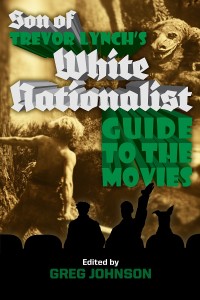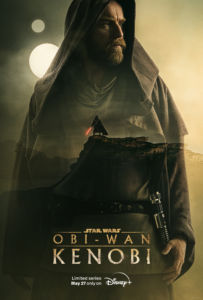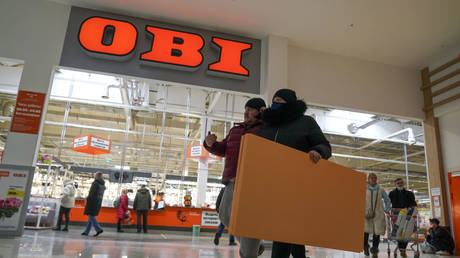Obi-Wan Kenobi
Disney’s six-part miniseries Obi-Wan Kenobi is so bad I was certain it was the work of Jar Jar Abrams. But no, it is the creation of someone named Deborah Chow.
Disney’s first Star Wars series, The Mandalorian, got off to a promising start. But I feared it was running out of ideas when the story kept returning to Tatooine. Another series, The Book of Boba Fett, never left Tatooine, and the Obi-Wan Kenobi miniseries begins and ends there. Tatooine rips off a lot from Arrakis, but sorry, it is not the most important planet in the universe. These shows keep returning to Tatooine because, lacking originality, they settle for cargo cult imitation, hoping that money will rain down from the sky.
Obi-Wan Kenobi is set ten years after the purge of the Jedi and the rise of the Empire. Obi-Wan is hiding out on Tatooine, watching from a distance as young Luke Skywalker grows up. This could be an interesting series if placed in the hands of someone who loved the underlying material, with the talent to do something new while remaining consistent with the overall mythos. But like Jar Jar Abrams, Deborah Chow regards the material and fans with contempt. Thus, this series is cynical and derivative. Beyond that, it is vulgar, shallow, and just plain stupid.
The Jedi are being hunted by the so-called Inquisitors, Force-wielders trained by Darth Vader to hunt down Jedi and potential Jedi. The Inquisitors are an interesting innovation and treated quite imaginatively in Star Wars: Rebels. Here, however, they are just sneering, leering, pulp baddies.
The main Inquisitor in this story is Reva, also known as Third Sister, played by a very empowered, very black woman complete with those braids and a highly prognathous profile (think Michelle Obama). Our actress has the unlikely name of Moses Ingram.
There are genuinely good black actors and actresses, but with the need for blacks to play Greek gods and European royals and every possible embodiment of wisdom, power, and heroism, the demand far outstrips the supply, thus films and TV are awash with black Affirmative Actors who couldn’t handle the role of caterpillar in a school play. Sadly, Moses Ingram is one of them, although in all fairness, few thespians could do much with such primitive characterization and insipid writing.
The basic plot is that Third Sistah is obsessed (for no apparent reason) with finding Obi-Wan Kenobi and chafes against the Inquisitors’ command structure. She’s impulsive, violent, and entitled. Third Sistah carries herself with immense pomp and dignity. But she behaves like a power-mad Transportation Security Administration (TSA) or Department of Motor Vehicles (DMV) worker, if such people had a license to kill. Sadly, she junks up a lot of screen time.
In this story, the Inquisitors go around seizing and torturing random civilians, on the assumption that Jedi are so compassionate they will betray themselves by coming to the rescue. Later, a rampaging Darth Vader gets in on the act. It is an utterly juvenile depiction of the power and villainy of what is essentially an esoteric spiritual order combined with a secret police force. It plays like the fusion of an Eli Wiesel novel and a million rap videos. (If Vader and company made a habit of behaving this way, how would a high-ranking military officer in A New Hope think that the Force is just superstition?)
Third Sistah somehow knows of the friendship between Obi-Wan Kenobi and Senator Organa, so she kidnaps Organa’s ten-year-old daughter Leia on the rather unlikely assumption that Organa — who runs a whole planet — will need to contact Obi-Wan for help.
Obi-Wan leaves his exile to rescue Leia, and Third Sistah springs her trap. However, the Grand Inquisitor steps in to shut her down for insubordination. So Third Sistah stabs him with a light saber and leaves him for dead. But Obi-Wan and Leia get away.

You can buy Son of Trevor Lynch’s White Nationalist Guide to the Movies here
Third Sistah finds them again, on another planet. Darth Vader appears to confront Obi-Wan and tries to burn him alive. Obi-Wan, however, is rescued.
Then Third Sistah captures Leia again, so Obi-Wan rescues her again from yet another planet with really cool sets.
Third Sistah now tracks them to still another planet, again with Vader in tow. But Third Sistah then goes rogue and tries to kill Vader. She is stabbed with a light saber and left for dead. But this doesn’t mean much, apparently, because it didn’t kill the Grand Inquisitor, who shows up alive. And indeed, Third Sistah is not killed, either. (I guess they never heard of a second light saber to the head, to make sure one’s target is dead.)
Obi-Wan and Leia manage to escape again. He draws Vader away from Leia by taking a small craft, then he and Vader battle it out on a small planet, Vader burying Obi-Wan under a mountain of rocks . . . leaving him for dead. But yes, like Wile E. Coyote, Obi-Wan survives this, too — then dusts himself off and heads back to Tatooine.
What’s with these Force-wielders, who can sense the presence of another mind across vast stretches of space but can’t sense that the person they have just stabbed or buried alive is dead or not? And what’s with Darth Vader, who we learn can snatch a rising spaceship from the sky but can’t get through a locked door?
Along the way, we learn that Vader and Third Sistah have a history. She was one of the younglings in the Jedi temple whom Anakin Skywalker slaughtered in Revenge of the Sith. Yes, she was left for dead then as well. No, nobody checked. No, the Force did not give her away then, either.
As you can imagine, Third Sistah was traumatized by this. What better way to deal with such trauma than to become a henchman of Vader himself, hunting and killing other Jedi? Was she torturing, killing, and lopping off limbs just to get close enough to Vader to punish him? You know: for being evil? And why, for Pete’s sake, after her failed assassination of Vader, did she scamper back to Tatooine seeking to kill Luke Skywalker? At that stage, she no longer needed to keep playing the Inquisitor. So what was the point? It makes no sense psychologically, but hey, they needed to pad out another episode with more pulpy thrills and a saccharine redemption scene.
Deborah Chow’s idea of human psychology is that people do bad and even crazy things because of traumas, but they’d be better if they just got the right therapy. It is not the sort of psychology that can generate human grandeur, but it is the closest thing to depth that this series allows.
Poor Obi-Wan. He was so traumatized by the destruction of the Jedi and having to dismember Anakin, leaving him to be incinerated. No wonder he’s having nightmares, finds it difficult to make friends, and can’t seem to access the Force.
But imagine how poor Anakin felt, being dismembered and left to burn. He must have nightmares in his bacta tank. No wonder he wants to burn Obi-Wan alive. Wouldn’t you want to do that to the guy who burnt you alive? (Doesn’t the fact that Vader located his headquarters on Mustafar, the very site of his defeat and dismemberment, indicate that he might be beyond that now?)
Even minor characters rattle off their traumas as if they are reasons for action. One diversity character rattles them off as a reason for not helping Obi-Wan, then helps him anyway.
Imagine the torture of sitting in on the creative meetings in which this dreck was hashed out.
Deborah Chow also lacks the most basic directorial skills. At one point, Third Sistah stands in front of her troops and orders them to open fire at a closed door. Later, she stands a short distance from her troops and whispers treasonous revelations to Obi-Wan. And then there is the ridiculous scene in which Obi-Wan tries to smuggle Leia out of a secure Imperial facility by hiding her under his coat. (Putting him in a hoop skirt would have attracted too much attention, I guess.)
Moreover, although the whole series is packed with frenzied action sequences, the overall effect is dramatically flat and uninvolving. There are not enough ideas here to justify the running time. In fact, I wish I could get back every minute I spent watching this turkey. And, frankly, this review is starting to feel like throwing good time after bad. But that’s part of a reviewer’s job. I waste my time to save yours.




